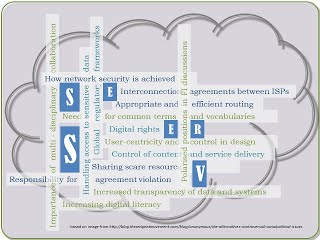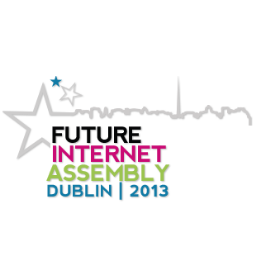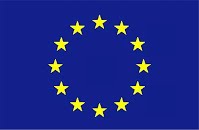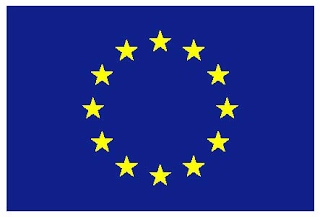SESERV aims to facilitate discussion and debate on Future Interent Socio-Economics (FISE) by bringing together those who study and those who build the Future Internet. The outcomes will be a multidiscplinary community of researchers who not only understand Europe's contribution to the Future Internet but also what research priorities need to be tackled to ensure increased European competitiveness. In this channel, we present the results of the FISE conversation. You will find information on community events, reports, publications, analysis and how conceptual
frameworks can be used to support effective discourse between both technical and
social science disciplines. |
FISE Conversation
End-users and their data in the Future Internet
The
current case concerning Google's privacy policies(which is really about those sending eMail to Google users) reminds us all that data
protection and privacy as a concern is not going to go away any time soon.
Attitudes and discomfort about personal data and its protection have been the subject of survey and study for some time, not least as part of the European Commission’s periodic pulse surveys, the Flash Eurobarometer studies. In 2008, summaries were provided for the current as well as previous years’ responses. Reflecting the period 1991 to 2008, with surveys in ‘91, ’96, 2003 and 2008, this is a time, of course, when the Western World moved through insecurities, the 09/11 attacks, and then the relative confidence and stability of the early noughties, and into the beginnings of the financial crisis of 2008. Although direct comparison with the 2011 survey is not straight forward, there are nevertheless some interesting developments and results. Responses vary over the survey period depending on industry. During 1991 and 2008, confidence across Europe that personal data would be protected by medical services increased from 75% at the start of that period to some 84% by 2008. Yet by 2011, this had dipped to 78%. The same trend could be seen for confidence in the treatment of personal data by banks and financial institutions had risen from 49% to 64%, and then down to 62%; and by public authorities (tax, social services, local authorities etc) rising from 47% to 75% before slipping back to 70%. During the period up to 2008, two-thirds (66%) were unaware that sensitive data require stricter control; and by 2011, in response to the question “Companies holding personal information about you may sometimes use it for a different purpose than the one it was collected for, without informing you (e.g. for direct marketing, targeted online advertising). How concerned are you about this use of your information?” seven out of ten EU citizens describe themselves as “Concerned”. As we move towards the realisation of the Future Internet, with access to all via any device from anywhere, and in light of the current Google case and against the background of European and member state legislation on data protection, we should ask how FI application and service developers as well as data subjects (“end users”) should handle personal data and what the implications might be for users. |
User Involvement in Future Internet Projects Paper Published
SESERV's paper "User Involvement in Future Internet Projects" has been recently published in The Future Internet Lecture Notes in Computer Science Volume 7858, 2013, pp
310-322. Abstract "To determine actual attitudes and practices of those in the Future Internet industry towards user involvement, delegates at the 2012 FIA participated in a focus group and a survey. Continuous user involvement is highly valued and expected to maximise the societal benefits of FI applications. However, just over half of the FI projects apply a user-centred approach, and a large number of survey respondents admitted to being not very knowledgeable about standard user-centred design tools or techniques." |
Come and Share at FIA DUBLIN with EXPERIMEDIA and FI projects
@
FUTURE INTERNET ASSEMBLY - Thurday 9th May 11h30 Following on from SESERV's work on user engagement we're please to announce an exciting FIA session on Scaling-up
stakeholders’ engagement: ‘from the lab into the real world’
Many ‘Future Internet’ projects face the challenge of scaling-up the innovative internet services that they developed or experimented with in their projects. Such scaling-up requires large-scale adoption by stakeholders, especially by engaging (local) communities of users and engaging (local) businesses and entrepreneurs. In this workshop, we will address this challenge. We will share insights and practical experiences, regarding human-centred innovation and business modelling. As a participant, you will increase your understanding of possible approaches for successfully scaling-up innovative internet services: ‘from the lab into the real world’. for more information about the workshop: about the organisator |
1st international conference on Internet Science
The “1st international conference on Internet Science”,
will be organized from April 9 to 11, 2013 in Brussels, under the
aegis of the European Commission, by the EINS FIRE project, the
Network of Excellence in Internet Science (http://www.internet-science.eu).
Hosted by the Royal Flemish Academy of Belgium for Science and the Arts (http://www.kvab.be), the event will be a highly multidisciplinary conference fostering dialogue among scholars and practitioners belonging Computer Science, Sociology, Art, Mathematics, Physics, Complex systems analysis, Psychology, Economics, Law, Political Science, Epistemology and other relevant disciplines. It will also provide the EINS Network of Excellence with an opportunity to interact with external stakeholders, detail project objectives and methodological approach, and showcase its first results. A Call for Papers has been launched, inviting papers shedding light on Internet Science from all involved disciplines and in particular papers crossing rigid disciplines boundaries, describing original research and innovative ideas (see http://internetscienceconference.eu for full details). A number of keynote and invited high-level speakers have been secured (http://internetscienceconference.eu/programme). The conference is open to any organizations and individuals interested in the event topic. Pre-registration at http://internet-science.eventbrite.com is compulsory since registration may be closed prior to the event date due to room capacity constraints. To contact the event organizers, please send an email to conference@internet-science.eu. |
The Tussle Analysis Cookbook is now available!
SESERV coordination project has defined a systematic approach for analyzing and assessing the importance of socio-economic tussles in the Internet. The main idea is to make sensible predictions about the behavior of major stakeholders in several scenarios, each scenario reflecting candidate implementations of the desired protocol function. We argue that selecting the features of a technology in a more holistic way, by taking into account all major socio-economic factors would lead to more attractive outcomes and increase the chances of that technology to be adopted in the long-term. Having applied extensively the SESERV tussle analysis methodology into several projects during the previous 2 years, we have gained significant experience that we would like to share with the Future Internet Socio-Economics community. The Tussle Analysis cookbook, which can be found here, answers two important questions:
SESERV believes that analyzing the anticipated tussles can help in better understanding major stakeholders' incentives. Furthermore, by following Clark's design principles, developers can tackle with conflicting incentives and increase their chances for building a long-term successful technology. However, it is true that taking into consideration the important socio-economic aspects of a technology can increase developers’ cost significantly. The main argument comes from Clark again; “fear and greed”. Developers compete with each other and thus will have the incentive to adopt tools and methodologies that make their technologies more attractive. In a similar line of thought, tussle analysis can be used as a strategic instrument for standardization bodies, research funding agencies and policy makers when selecting on which technologies to focus standardization efforts on, or to be funded (giving incentives to technology makers to deal with the most critical functions). The second question explains the steps of the proposed methodology, providing methods and tools suitable for each step as well as taxonomies that can act as a starting point. Furthermore, the methodology is applied to a case study from a FP7 European research project, called ULOOP. |
A Few Days Left to Propose Sessions for FIA Dublin 8-10 May 2013
The next FIA will take place in Dublin, Ireland, on 8-10 May 2013. The FIA Steering Committee launches an open call for the 12 FIA working sessions. The deadline for submission of working session proposals is 20th January 2013. Please follow the |
SESERV Assessed Successful by European Commission
After two years of effectively fertilizing the communication between specialists from diverse disciplines, that share an interest in the Future Internet, the SESERV project has been credited for this valuable contribution in that it was assessed as successful by the European Commission during its final project review. Although this officially ends the working period of SESERV, the insights into the socio-economics of the Future Internet and the stimulation and thereby densification of highly interdisciplinary liaisons throughout the Future Internet community, motivate project partners to partially continue their efforts. You are very welcome to become part of this post project community work. |
Using Focus Groups and Tussle Analysis Methodology for Understanding Socio-Economic Aspects of the Future Internet
This whitepaper summarises the general approach as adopted by WP2 and WP3 in organising andanalysing focus group discussions on a range of socio-economic topics. Specific
conclusions from the various groups are reported in individual, targeted
documents (D2.2 and D3.2). Furthermore, the SESERV framework
(called Tussle Analysis) is described and demonstrated, which helps technology
developers and policy makers to understand the complex interplay of technology
and economics in the Internet.
The rationale behind running focus groups as opposed to any other method arose from the observation at the SESERV Oxford workshop that there was an urgent need to adopt a multi-disciplinary approach to discussion. Focus groups are specifically geared towards an examination of how ideas and concepts develop in a given context. A focus group approach was an ideal method to encourage such cross-disciplinary discussion. As described in the preceding sections, the focus group methodology found in the literature was reviewed and either applied directly to the SESERV focus groups, or modified in some small detail as outlined to suit the topics and group composition available to SESERV. WP2, focusing on economic issues, adopted a structured approach, seeding discussion on the basis of a Challenge 1 project presentation to describe one possible solution to the specific issues under debate. WP3 by contrast used a less formal approach, using the occasional question to spark off discussion. In both cases, conversations were lively and generated a significant set of concepts and ideas which would be worthwhile pursuing and which are developed in the corresponding deliverables in the respective work packages. The Tussle Analysis framework is composed of a methodology for evaluating Internet technologies (called “tussle analysis”) and a set of taxonomies. The latter include: a) An extensive taxonomy of Internet functionalities, which covers both aspects of how services are being hosted (cloud-related functionalities) and their actual delivery (network-related functionalities). b) A generic classification of Internet stakeholder into seven high-level stakeholder roles, where each one is further decomposed into more detailed instances. This methodology encourages and guides technology developers in identifying the stakeholders of the technologies under development/investigation, their interests and assessing whether these would be met with a particular implementation of each such technology. The idea is that designing a technology in a more holistic way, by taking into account the interests of major stakeholders early in the process, would lead to more sustainable socio-economic outcomes and increase the chances of that technology being adopted in the long-term. The outcomes of all bilateral discussions, wider focus groups and meetings resulted in a set of 6 economic SESERV recommendations to research projects, providers and policy makers for successfully redesigning and configuring Future Internet technologies. These are: 1. Technology makers should understand major stakeholders' interests. 2. Technology makers should be neutral. 3. Technology makers should explore consequences and dependencies on complementary technologies. 4. Technology makers and Providers should align conflicting interests through incentive mechanisms. 5. Technology makers should increase transparency. 6. Policy makers should encourage knowledge exchange and joint commitments. The project also had a set of 22 social SESERV recommendations, detailed above, which fall into six broad categories: 1. Research Project Design / Project Development 2. Users/Participants Experiences and Perspectives 3. Internet Data 4. Regulation and Public Policy 5. Transparency and Trust 6. Citizenship, Awareness, and Education
|
Look Who's Talking!
 One effective way of bringing stakeholders together was using a focus group methodology. As an approach, it has been used many times, especially in the social sciences, to explore ideas and their formation about topics ranging from proposed new brands (marketing) to personal and sexual health (in nursing and paramedical social care). As adopted by SESERV during the second year of the project to explore both economic issues around network services and resource provision as well as more generic societal and socio-economic concerns like user-centricity and the need to involve all stakeholders, the methodology as described in the literature suggested we needed to think carefully about the following issues: This post briefly summarises the way we implemented focus groups; all issues and considerations are discussed in detail in [D1.5]. Topic selection was reported in elsewhere. Our experience can be summarised as follows:
The overall experience with the methodology was very positive and allowed us to explore the issues highlighted in the first year, especially at Oxford, and move forward to make the recommendations we have in the various deliverables [D2.2, D3.2]. By way of conclusion, SESERV was flexible in its approach to focus group methodology: we were dealing with motivated participants who had significant experience and interest in what we were discussing, but who were time- and resource-constrained; we chose to exploit associated events organised by FIA and the like, as well as the second workshop we organised, since this meant participants would be on site and more likely to attend. Nonetheless, recruitment proved the main challenge. Ultimately, this led to a one shot approach: whereas focus groups are often repeated with the same or different participants, reconvening with the same participants was avoided for pragmatic reasons. The focus groups turned out to be very successful though in moving the FISE Conversation forward. |
FLAMINGO - EU NoE on "Management of the Future Internet"
The new NoE FLAMINGO started on Nov 1, 2012 and integrates the research of leading European research groups in the area of network and service management, including their economic, legal, and regulatory aspects, to strengthen the European and worldwide research in this area and to bridge the gap between scientific research and industrial application. To achieve these goals FLAMINGO performs a broad range of activities, such as the development of open source software, the establishment of joint labs, the exchange of researchers as well as jointly supervised Ph.D. students, the development of educational and training material, and the interaction with academia and industry to organize events and to contribute to (IETF, IRTF, and ITU-T) standardization. UZH will be a NoE partner and leader of WP7 on "Economic, Legal, and Regulative Constraints", thus, in a great position to leverage SESERV results and outcomes in those domains. |










